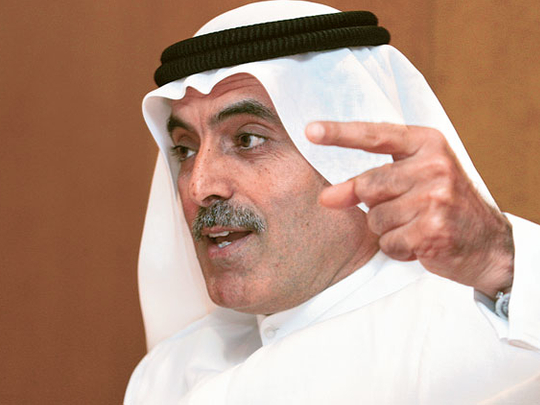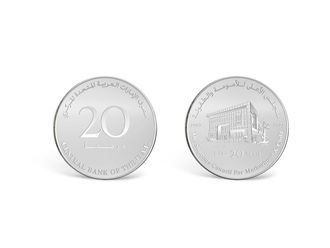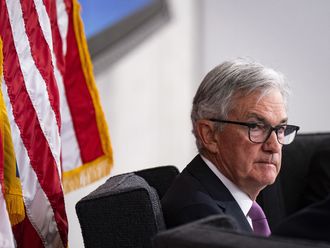
Dubai: Abdul Aziz Al Ghurair, Chief Executive Officer of Mashreq, believes that the worst is over for the banking sector. While he is optimistic about economic recovery and strong growth in the banking sector, he believes concerted action by the government, Central Bank and the banking industry is needed to kick-start the economy and revive loan growth.
In an interview with Gulf News, Al Ghurair shared his views on what should be done to get the economy and the banking sector back to a strong growth trajectory.
Gulf News: Despite being a difficult year for the banking industry as a whole, Mashreq's results for the fourth quarter and the full year 2010 indicate that the bank has made significant progress in the recovery. What were the key elements of your strategy when you were hit by the steady rise in non-performing loans (NPLs) and portfolio impairments in the last two years?
Abdul Aziz Al Ghurair: Our position was very clear, that we wanted to be very transparent and conservative when it comes to recognising NPLs and wanted to be more open to our shareholders and to the market. I think the market should reward banks that have been transparent in recognising their problems. I think the tendency of banks to hide the problem assets over a period of three or four years should not be allowed.
Last year Mashreq experienced a contraction of both assets and liabilities side of the balance sheet. Do you expect to see some balance sheet growth this year?
There was a reason for us to shrink our books on both assets and liabilities last year. At the end of the day we want to run a profitable business and for the last two years there was very little growth on the assets side. In the past, some of the growth came from the domestic market and some from the international market.
Of course, practically all the international growth disappeared during the last two years and if at all there was any growth during this period it came from the domestic customers either because their businesses were growing or sometimes because of rescheduling of some loans.
In the last two years we were facing a situation where lending was not growing and accordingly we could not accumulate deposits all the time. Thus we decided to shrink our deposits.
Has there been a big surge in loan restructuring during the last two years?
When a customer is in trouble we classify it as a non-performing loan. There is no playing around with this issue and I think the Central Bank is very clear on that. But sometimes there are customers who get in difficulty because of situations that are out of their control. These are customers with genuine needs and the role of the bank is to accommodate these customers and there is a real need to reschedule the loans of these customers.
After going through a period of lower demand for credit following the financial crisis do you see credit picking up this year?
Actually we are in a dilemma. Those customers we want to lend, they are not taking our money, and those customers who want to borrow, we are not lending, because they are not worth lending. So that is the current status. This simply implies that there is no huge demand for credit in the market right now.
The common complaint we hear from the market is that banks are not willing to lend. Do you think the banks are still risk averse?
True, the banks are no longer aggressive as we used to be. We (banks) have put a lot tighter conditions on lending so that has also put pressure on corporate lending. Now the only way forward is to stimulate credit growth through economic growth. If the economy remains stagnant or is moving ahead at a slow pace we will have no credit growth. So it is the GDP growth that is going to drive demand for credit. For GDP to grow we have many different options. The first option is that we need to see large-scale government spending to stimulate economic growth.
The UAE Central Bank insists that there is enough liquidity in the banking system. If that is the case what is preventing the banks from loosening the grip on lending?
I have a slightly different view on this. We need to address the supply side of lending. We hear a lot about liquidity, but if you look at the deposit to loan ratio in the UAE, it is almost one to one. Clearly there isn't much liquidity in the market. A good indication of that is the cost of deposits. Why are the banks paying 4 per cent (on deposits)? Last year the cost of deposits was above 6 per cent while on dollar it was 1.5 per cent and across the Gulf region it is 1.5 per cent. Banks are scrambling for deposits mainly to meet Central Bank guidelines and there simply isn't enough liquidity in the market.
Thus we feel that the government will have to pump more cash into the system. In the past the government took a great decision by pumping Dh70 billion in long-term deposits which was considered Tier 2 capital which helped to strengthen the entire banking system. But the government stopped there. That is not enough. They need to pump in more liquidity and they have many other options also.
One way to ease liquidity for banks is that the government can buy all highly rated securities held by the banks. Every single bank in the UAE has some sovereign debts in their portfolios. I am not asking them to buy any junk bonds, rather the high quality UAE government debt. If the government buys these at the market rate (we are not asking for support) the liquidity situation will ease as banks will get a big chunk of cash.
Additionally, the Central Bank should have a permanent window for discounting high quality securities where banks could go and discount these. It gives peace of mind to the banks. In the absence of this facility what banks tend to do is to keep a liquidity cushion for emergency requirements. This is a very expensive way of managing liquidity.
If the Central Bank wants to pump more liquidity into the system there are also other ways to do it. Banks have some reserve requirements to be kept on their deposits. Currently the total size of the reserves of the banks operating in the UAE is Dh71 billion. This is about 14 per cent on the current accounts and 1 per cent on the fixed deposits. Really the market is deprived of lending this money. Banks can't touch this money. If you want to kick-start the economy, then kick-start the banking sector. I have heard the minister of economy, minister of finance and Central Bank governor saying: "We want banks to lend." As banks we are saying we want our money back, the Dh71 billion should be released to the banking system.
There is widespread concern about the high cost of borrowing. What are your views?
Yes indeed. As I said earlier to kick start the economy the cost of borrowing also has to be brought down. To do that, we need to bring down the cost of deposits first by injecting more liquidity.
As part of bringing down the cost of funds (deposits), I think the government departments should stop the practice of tendering their deposits through auction. Now every institution, whether government or semi-government, tenders its money through auction and allows banks to compete for deposits. It is a great tool. But today through these auctions the government departments are setting the benchmark for deposits. If I pay the federal government 4 to 6 per cent, then I have no option but to pay my small depositors the same rate. Say if the government takes a decision that they will not take more than 2 per cent on their deposits that will automatically bring down the market rates.
The total loan size in the UAE economy is more than Dh1 trillion. If we have a drop of 2 per cent in the cost of borrowing, Dh20 billion will be released into the economy. This is phenomenal. The government should ideally pass on this cost savings to the economy which will result in jump-starting the economy.
There was a significant decline in provisions for bad loans for most UAE banks in the fourth quarter. Mashreq's own loan losses declined by 16 per cent. Does this mean that the worst is over for the UAE's banking sector?
My view is that it can't get any worse than what we have seen. I think there are still signs of stress in the economy. Looking at our retail and corporate customers, I can say that may of them are stretched. They are genuine customers. I think even in this year we will see some banks continuing to make provisions, but the banking system as a whole is healthy.
Do you think the terms of Dubai World's restructuring was the best possible outcome?
We as a bank have always been generally very proactive in recognising non-performing loans. We also accept the fact that we need to work with clients in difficulties with the best possible solution. So as far as the restructuring was concerned, we would not have agreed if this was not the best possible solution. Of course, as a banker I would want my money immediately and my interest payment without delay. But sometimes this is not possible.
There are other government related entities such as Dubai Holding, its subsidiaries and a few other entities that are currently negotiating loan restructuring. Do you expect any impact on Mashreq from these restructurings?
As I said earlier, if there has to be restructuring, like all other banks operating in the country we will go for the best possible outcome. If there are NPLs to be recognised, we will not hesitate to do that. Of course, we must also understand that the NPLs we are recognising today to comply with the accounting standards are going to come back to us over a period of time.
You said in the full year result announcement that Mashreq has provided for 80 per cent of your exposure to Saad and Alghosaibi Group. What are your chances of recovering the money through the legal process?
We expect the legal system in Saudi Arabia to allow a fair recovery of the money they (Saad and Alghosaibi Group) owe us. So far there is a freeze on both accounts. And I think this is not a world class banking system or a world class judicial system in Saudi Arabia. If Saudi Arabia has to be at par with the rest of the world in development they should allow banks to recover their money through the courts and there should not be a freezing of assets.
All the assets of these groups are frozen now and there is no transparency whatsoever in the system in doing business with the Saudi clients. Many regional banks and international banks are not lending in Saudi Arabia because through experience they have found out that they can lend, but if the client has its major operations in Saudi Arabia there is way to recover their money.
Recent events suggest that the political situation has turned very volatile in the region. What are your views on the economic consequences of these changes?
These events are going to result in some hiccups in the economies and could result in some temporary losses for businesses. Yes, my branches were closed for 10 days. That is a hiccup. But I think businesses will bounce back once there is more commitment from the governments to look after their people, their rights, there will be more participation by the people. I think there will be euphoria in the region as the changes are happening fast. We no longer have all the time. People are demanding fast and speedy change.












